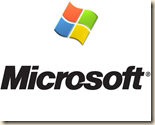Sign up for free government programs for EMR.
 Did you know that right now the state and federal government has programs that you may be eligible for. You do not have to have a disabiity, nor be a member of a special class. Our operators are waiting to hear from you for these special programs set up by the government. Don't wait to sign up for these programs. If you were born between 1900 and 2000 you are elibigle for one of these little known government subsidies.
Did you know that right now the state and federal government has programs that you may be eligible for. You do not have to have a disabiity, nor be a member of a special class. Our operators are waiting to hear from you for these special programs set up by the government. Don't wait to sign up for these programs. If you were born between 1900 and 2000 you are elibigle for one of these little known government subsidies.
“Because you pay your income taxes on time, you have been awarded a free $12,500 government grant! To get your grant, simply give us your checking account information, and we will direct-deposit the grant into your bank account!” Even if you don't pay taxes on time....our program has a waiver for that requirement.
Our program outlines all the monies that have been allotted for you to purchase and EMR for your medical practice."
Not withstanding the above "fantasy financing for EMR", the reality is that the situation remains grim for most providers.
Joseph Britto, CEO of Isabel Healthcare writes in The Health Care Blog,
"September 25, 2008, the Certification Commission for Healthcare Information Technology (CCHIT) issued a report that reviewed 90 EMR incentive programs (state, federal, private) with a total funding of $700 million available.
Of course there are some disclaimers.
Many health policy experts believed that “if you subsidize it, they will come.” While that approach has worked in persuading people to take mass transit, it hasn’t lured many physicians into using EMRs. ............................
 Health Industry Insights, a private research firm, reviewing the CCHIT report, estimated that the cost to implement an EMR is roughly $25,000 per physician and that the $700 million currently available would represent only 9% of the expected total national cost to furnish all physicians in private practice with an EMR. "
Health Industry Insights, a private research firm, reviewing the CCHIT report, estimated that the cost to implement an EMR is roughly $25,000 per physician and that the $700 million currently available would represent only 9% of the expected total national cost to furnish all physicians in private practice with an EMR. "
With these realistic limitations in mind, it may be time for a new mindset of what the best utiization is for our limited IT resources.
"As we endure financially difficult times, we believe it is time for IT leaders at hospitals and medical groups to take second look at a different set of technologies, one which, like EMRs, can align physicians and hospitals in the shared goals of improving patient care and reducing clinical risk. "
"Clinical decision support (CDS) technology is not new, it has been available in various forms since 1986, but as computer hardware has become vastly more powerful, the newer versions of the systems have become faster and more practical for physicians to use. One particular kind of CDS technology, diagnosis decision support (DDS), has been adopted in many hospitals in the past two years, as medical executives realize its value in attracting leading physicians who understand and value medical knowledge tools. "DDS systems include two key components: a dynamic medical knowledge data base and an inferencing or logic engine to sort and select decision options for clinicians.
There are some skepticism as to the value of CDS, by some physicians
Ira Breite states, "The real reason that internists and other PCPs have been slow to adopt the EHR systems (EMR is sooo 20th century)is that they are not ready for prime time. Data entry is slow to the point of ridiculous, and while "decision support" may work in a hospital where lots of available data can be condensed into an algorithm, its still not real useful for the question of whether to give antibiotics in the case of sinusitis. Yes, I know there is an algorithm for that, but the reality is I don't always follow it and neither do the guys who wrote it (if they actually take care of patients)."
With this in mind.....call 800-FRE-EEMR or run down to the mailbox and send off your application(s) for these FREE GOVERNMENT GRANTS



















